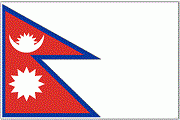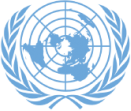Nepal has been elected as a member of the Executive Board of the United Nations Entity for Gender Equality and Empowerment of Women (UN-Women) for the term 2019-2021. Nepal will be serving in that capacity for the first time since its creation in 2010.
Together, Bangladesh, India, Mongolia and Saudi Arabia were elected from the Asia-Pacific region, as part of a total of 17 States elected from different geographical regions, by acclamation at the Coordination and Management Meeting of the Economic and Social Council (ECOSOC) this afternoon. The seats would be vacant from 01 January 2019.
Similarly, Nepal has also been elected as a member of the Commission on Science and Technology for Development (CSTD) for the term 2019-2022, election for which were held at the same meeting of the ECOSOC today. As a member state requested for secret ballots, Nepal obtained 52 out of 53 valid votes of the 54 members of the ECOSOC. China, Thailand, and Iran were also elected to the Commission from the Asia-Pacific region.
***
Angola, Ghana, Kenya, Morocco and Equatorial Guinea from the African region; Georgia and Hungary from the Eastern European region; Chile, Colombia and Cuba from the Latin American and Caribbean region; and Ireland and Turkey from Western European and other States Group were also elected to the Executive Board of the UN-Women.
UN-Women was established in 2010 by General Assembly resolution 64/289 to improve the coordination and coherence of work on gender equality and women’s empowerment, replacing UNIFEM.
Botswana, Egypt, Ethiopia, Kenya and Liberia from African region; Hungary, Latvia and Romania from Eastern European region; Cuba from Latin American and Caribbean region; and Belgium, Canada, United Kingdom and the United States from Western European and Other States Group were elected to the CSTD.
CSTD provides the General Assembly and the ECOSOC with high-level advice on relevant issues through analysis and policy recommendations or options in order to enable those organs to guide the future work of the UN, develop common policies and agree on appropriate actions.


